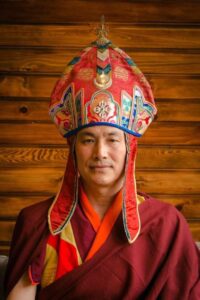H. E. Busa Trulku Sonam Gyeltshen Rinpoche
The Biography of The 11th Busa Trulku Rinpoche
Born in 1974, Busa Trulku Rinpoche was recognised as a true son of the Dorling lineage. He was born to father Phurpa and mother Aum Lhamo from Zhemgang Zhelngo.Before he came to this life, he was born as various Buddhist masters.
His previous life was born as Lam Phuntsho Dorji in Chendebji, Trongsa, Bhutan who became the ninth abbot of Busa Wangdue Gonpa.
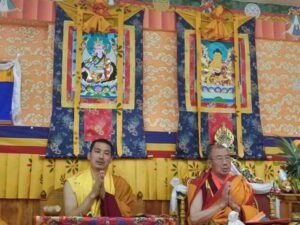
He was bright and grasped the teachings very quickly. Alongside his uncle Lam Ngawang Tenzin, he received empowerment and oral transmission of Buddhist canon, Kanjur Chemo, Dham-ngak Zoe and Jigling Kabum from Kyabje Dilgo Khyentse, Tashi Peljor.
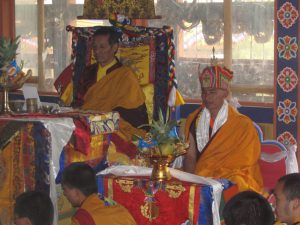
In 1980, he was ordained as a monk in the Central Monastic Body where he learnt the Kagyud tradition for five years. At the age of 14 in 1987, he was sent to Gangteng Shedra where he spent more than 10 years and completed his higher education in 2000. While in Gangtey, he received complete teaching of Pedling tradition with empowerment, oral transmission, pitch instruction and upadesha from Ganteng Trulku Rinpoche who then accepted him as his heart son.
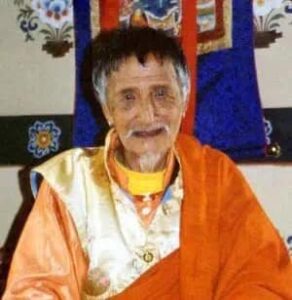
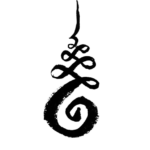
In 2002, he received complete teachings on Dorling tradition from Aja Lama Zhenphen Drodul Dorji Tenzin (1921-2005) who formally recognized him as the true reincarnation of Lam Phuntsho Dorji, the ninth abbot of Busa Wangdue Gonpa and issued a certificate of recognition. His second name Gyeltshen was added to his first name Sonam. Hence his name became Busa Trulku Sonam Gyaltshen. He was then entrusted with full responsibility to uphold the Dorling tradition as his representative.
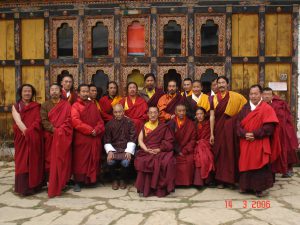
In 2008, coinciding with the three important auspicious occasions taking place in the country- enthronement of the Fifth Druk Gyalpo, completion of 100 years of monarchy, and institution of Democratic Constitutional Monarchy, Busa Trulku Rinpoche was conferred the title of Pedling Khenpo (khenthog dhangpa) by Gangteng Trulku Rinpoche.

A year later in 2009, his paternal uncle Lam Ngawang Tenzin abdicated the seat and he was enthroned as his successor. Since then, he took charge of Busa Wangdue Goenpa Dorling Dhensa 多傑林巴 ,Rabtse Gonpa, Dued Pung Zilnon Ling and Dangchu Zhabje Lhakhang and contributed immensely in strengthening and propagating the Dorling tradition.
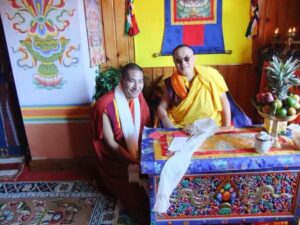
Through various ways and means, Busa Trulku Rinpoche is trying to propagate the Dorling tradition not only in Bhutan but also in other countries such as Hongkong and Taiwan.


